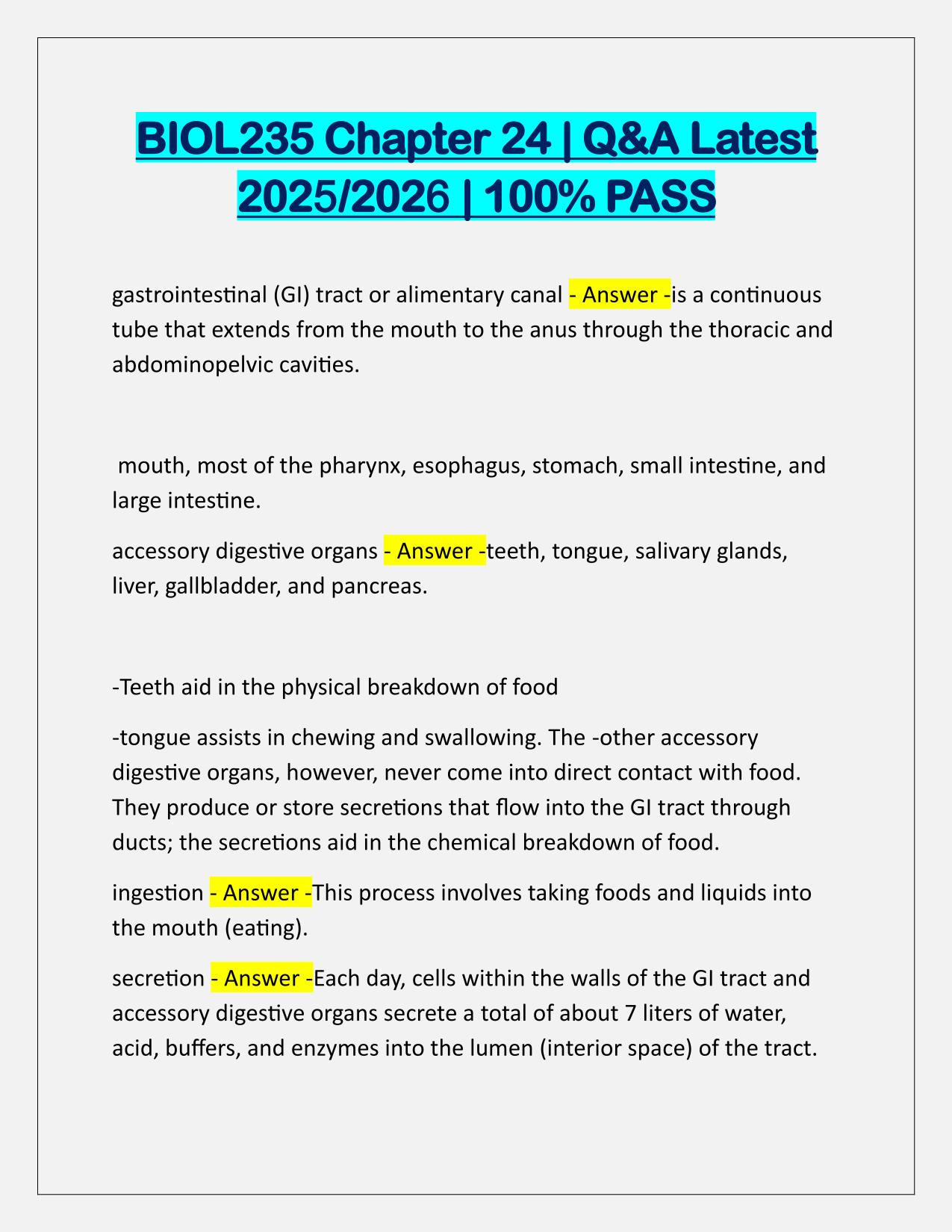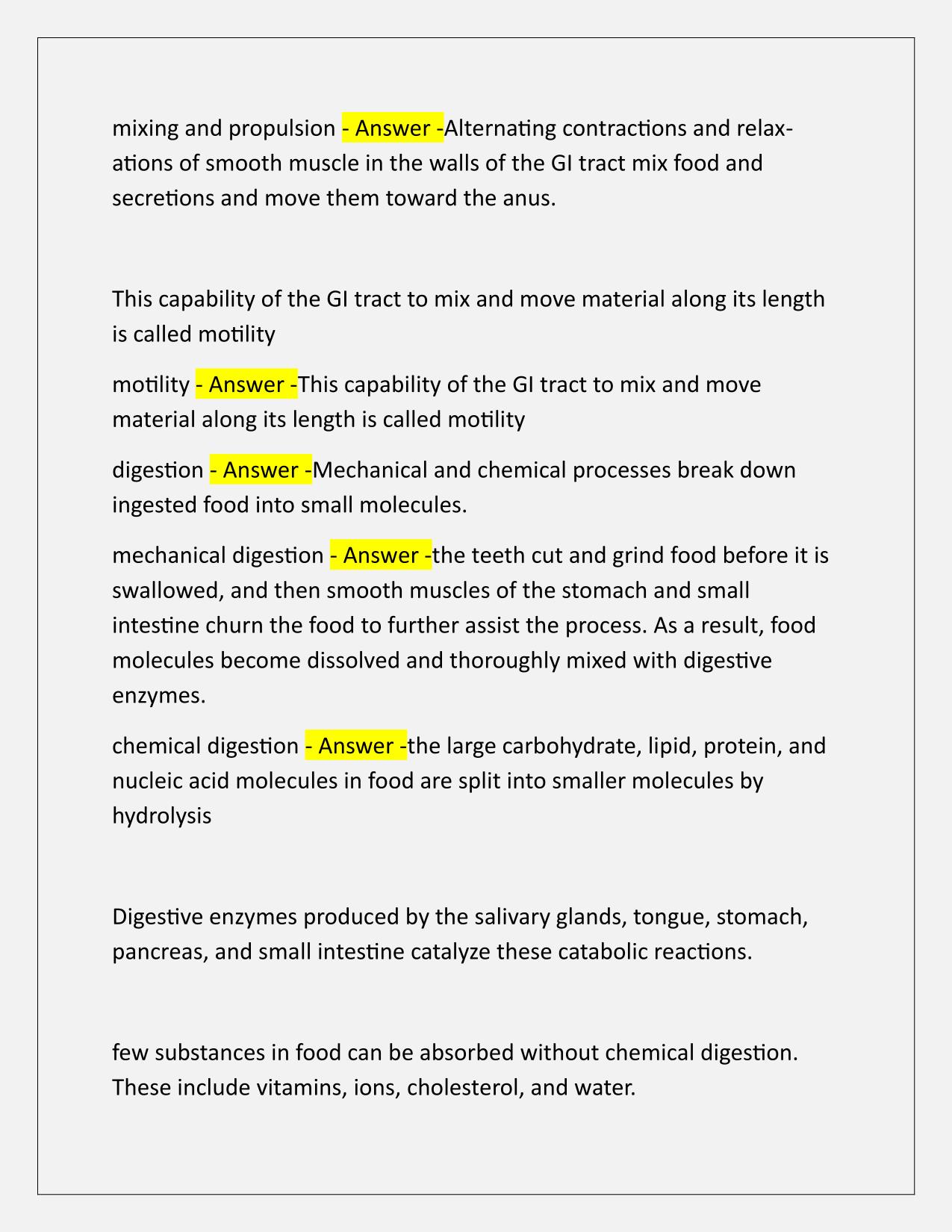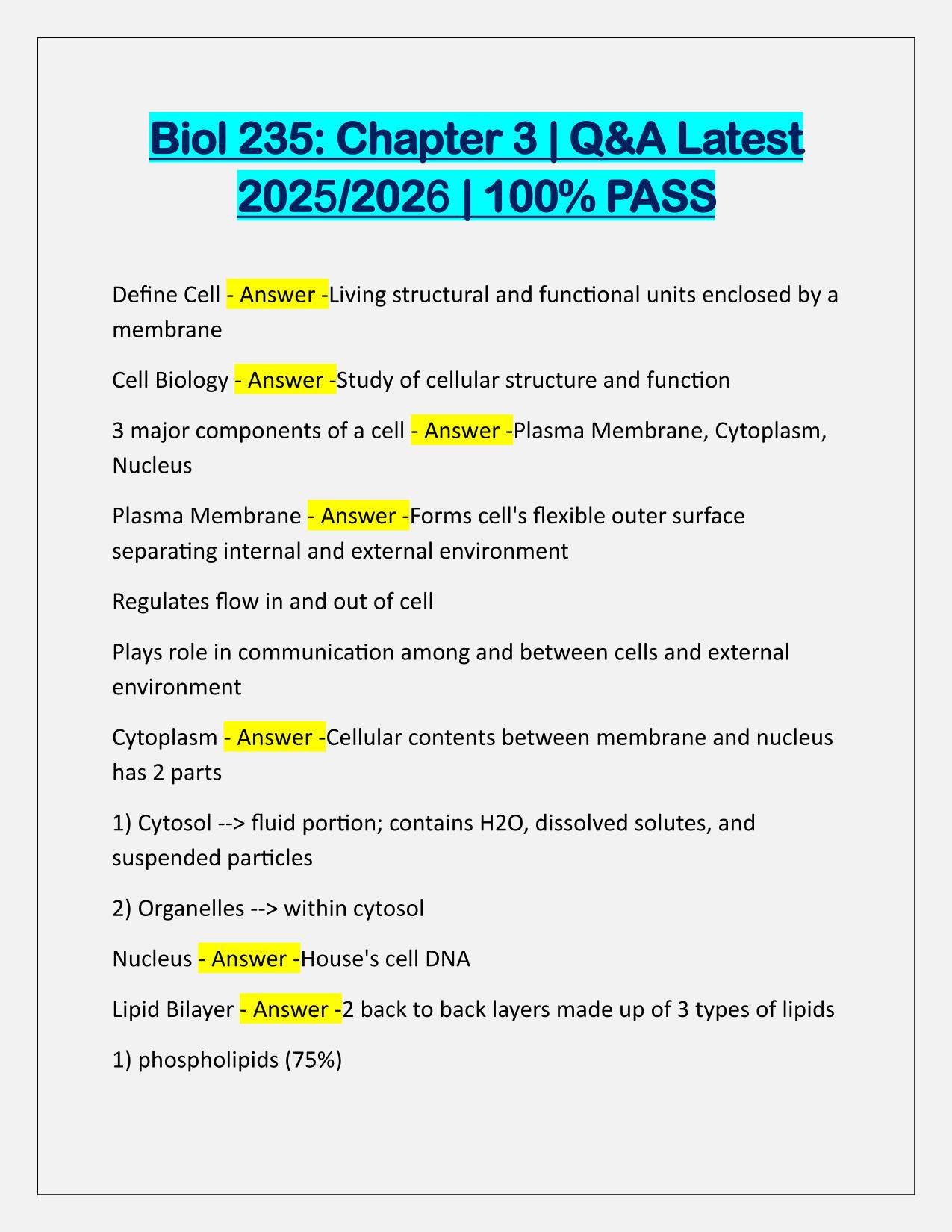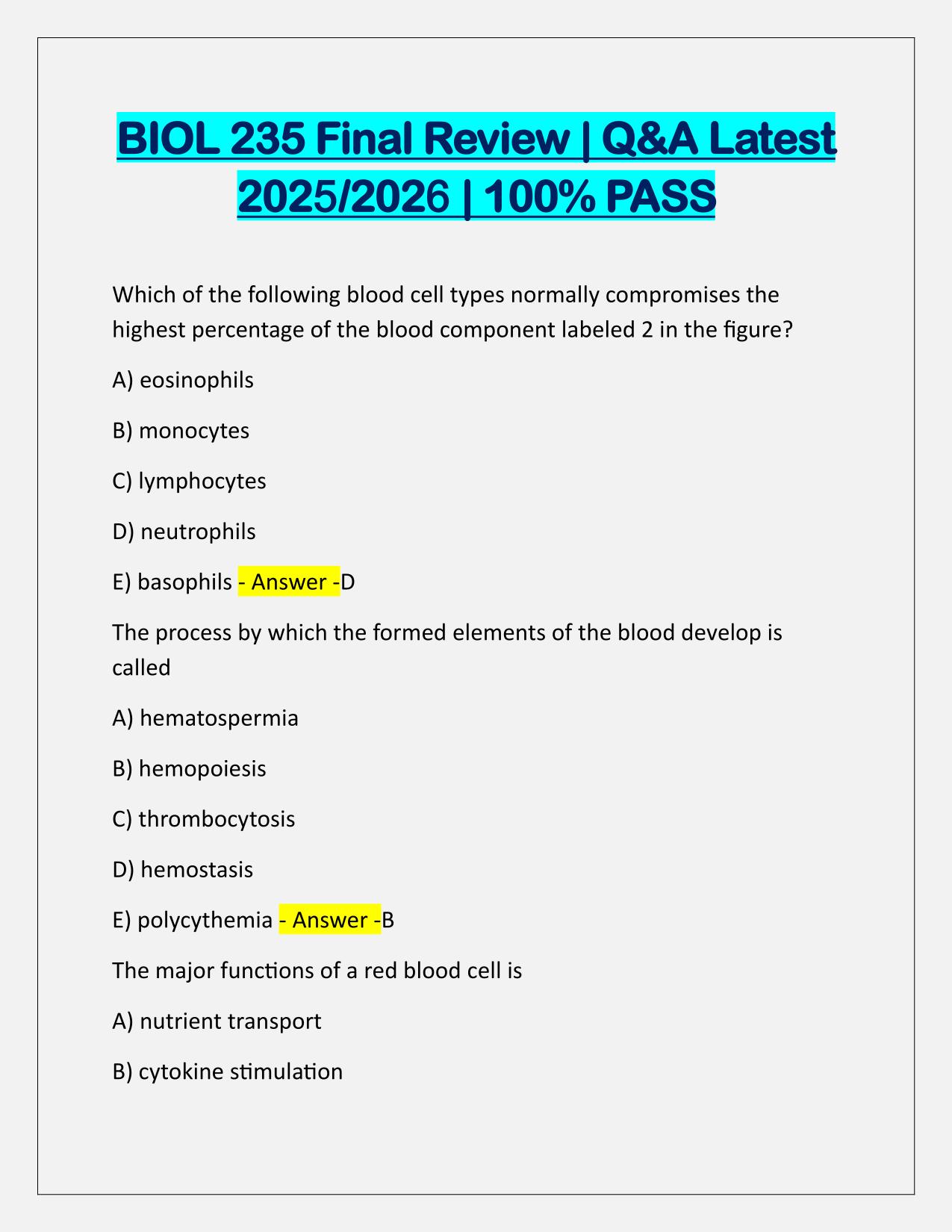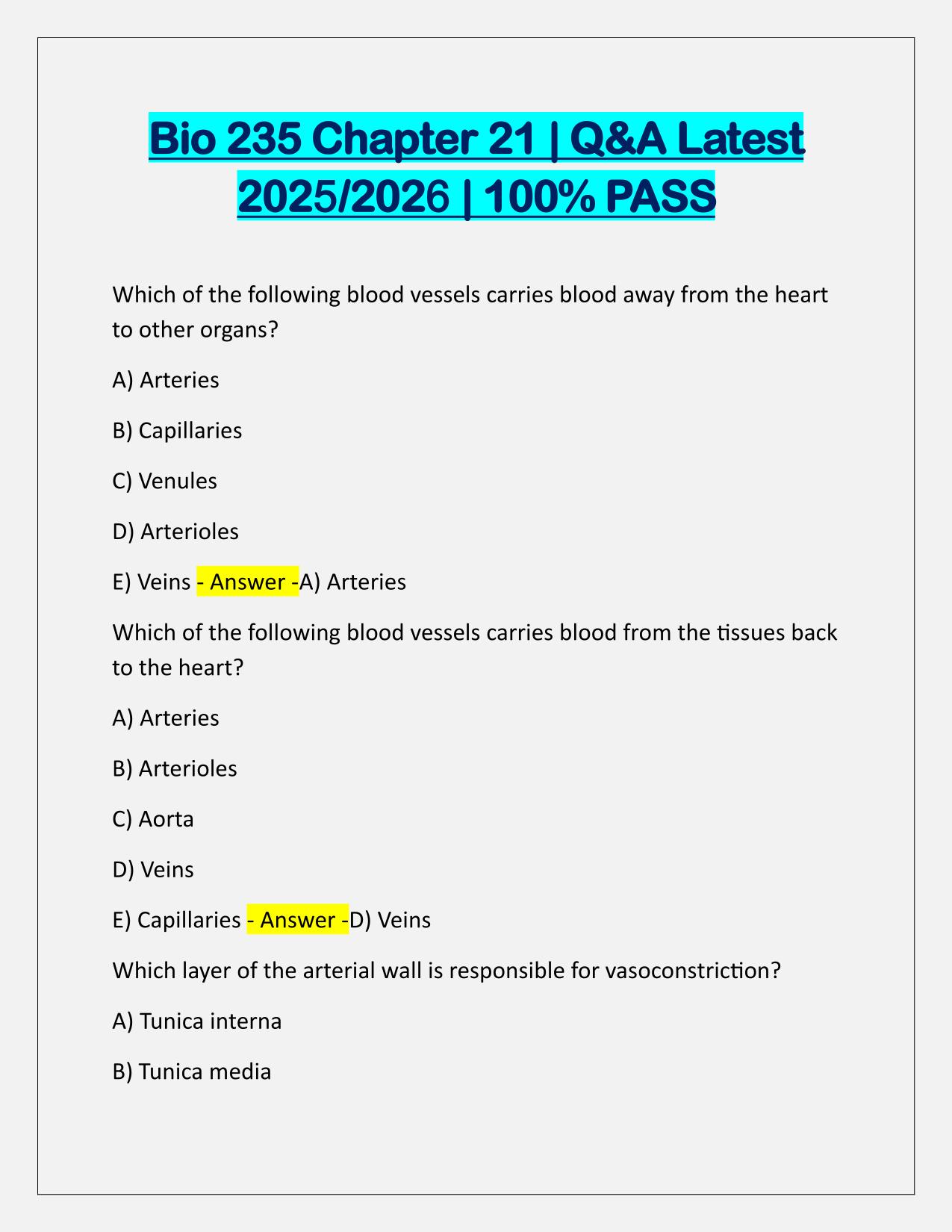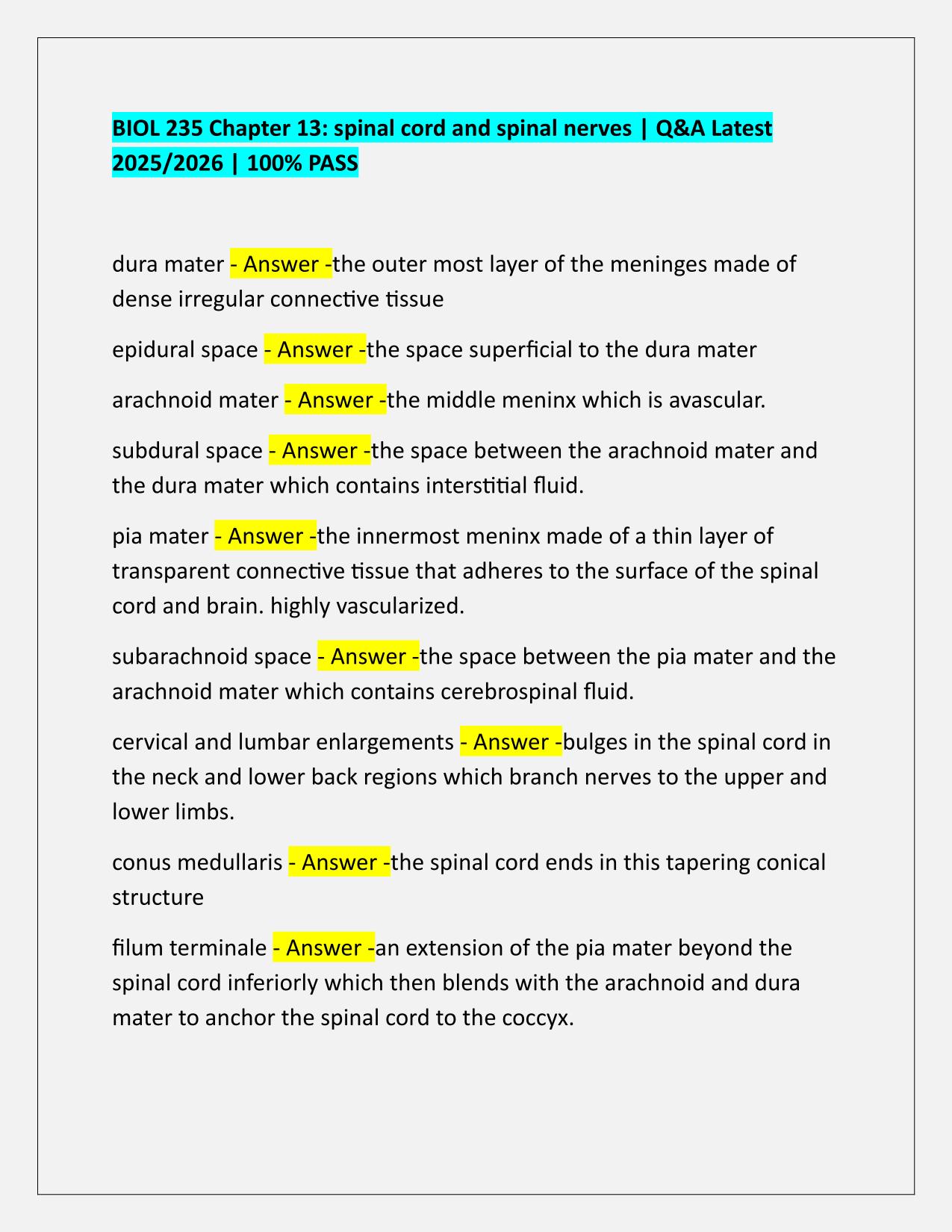BIOL235 Chapter 24 Correctly Answered Latest Update
Course:
BIOL 235
Institution:
BIOL 235
BIOL235 Chapter 24 Correctly Answered Latest Update
After purchase, you get:
✅ Instant PDF Download
✅ Verified answer explanations
✅ Refund if not Satisfied
✅ Prepared for 2025/2026 test cycle
Document Information
| Uploaded on: | May 8, 2025 |
| Last updated: | May 8, 2025 |
| Number of pages: | 89 |
| Written in: | 2025/2026 |
| Type: | Exam (elaborations) |
| Contains: | Questions & Answers |
| Tags: | BIOL235 Chapter 24 Correctly Answered Latest Update |
Seller Information

AdelineJean
User Reviews (0)
Exam (Elaborations)
$10.00
Bundle Deal! Get all 17 docs for just $25.00
Add to Cart
100% satisfaction guarantee
Refund Upon dissatisfaction
Immediately available after purchase
Available in Both online and PDF
$10.00
| 0 sold
Related Documents
Available in a Bundle
Content Preview
BIOL235 Chapter 24 | Q&A Latest 2025/2026 | 100% PASS gastrointestinal (GI) tract or alimentary canal - Answer -is a continuous tube that extends from the mouth to the anus through the thoracic and abdominopelvic cavities. mouth, most of the pharynx, esophagus, stomach, small intestine, and large intestine. accessory digestive organs - Answer -teeth, tongue, salivary glands, liver, gallbladder, and pancreas. -Teeth aid in the physical breakdown of food -tongue assists in chewing and swallowing. The -other accessory digestive organs, however, never come into direct contact with food. They produce or store secretions that flow into the GI tract through ducts; the secretions aid in the chemical breakdown of food. ingestion - Answer -This process involves taking foods and liquids into the mouth (eating). secretion - Answer -Each day, cells within the walls of the GI tract and accessory digestive organs secrete a total of about 7 liters of water, acid, buffers, and enzymes into the lumen (interior space) of the tract.
